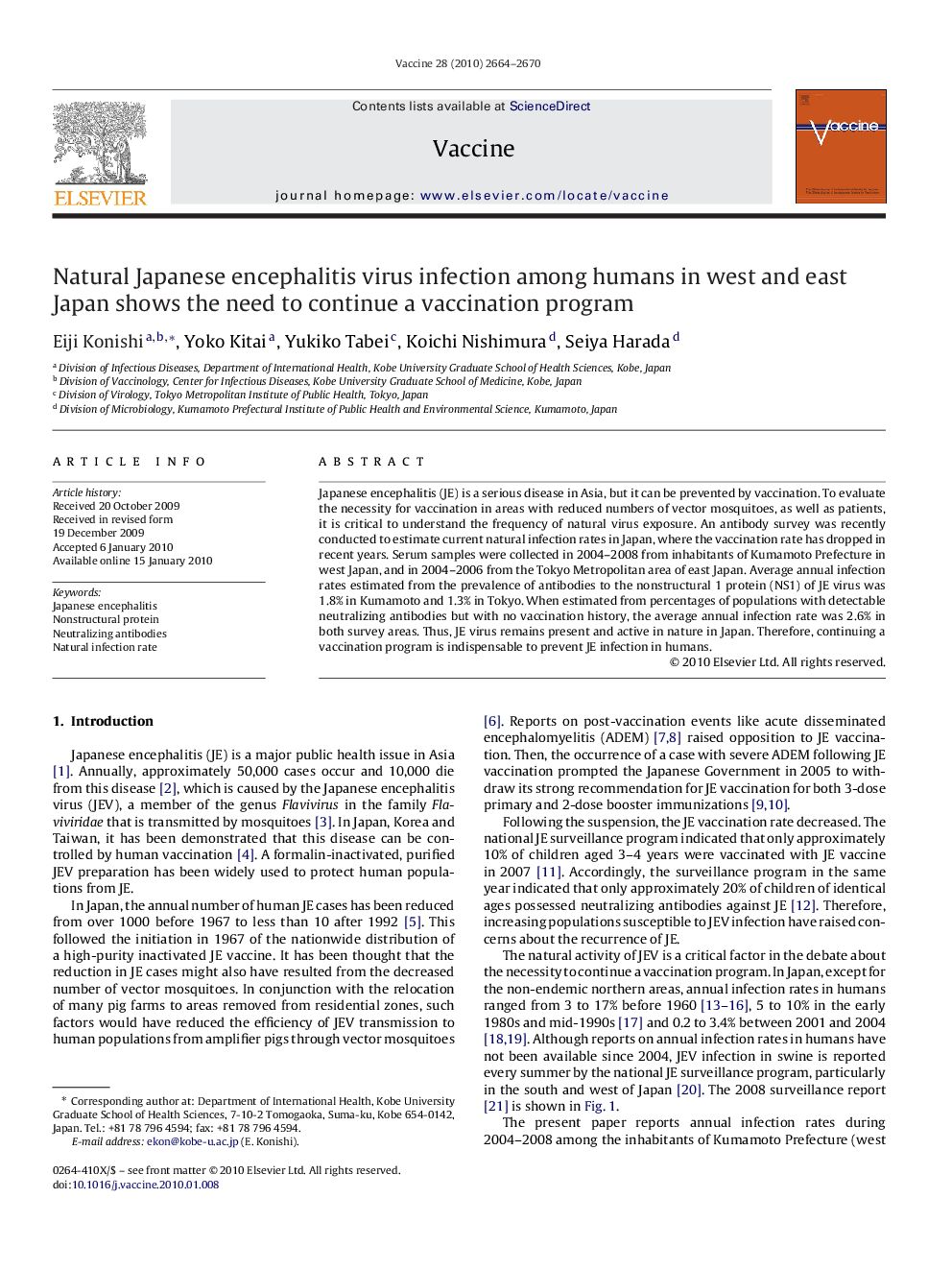| Article ID | Journal | Published Year | Pages | File Type |
|---|---|---|---|---|
| 2404165 | Vaccine | 2010 | 7 Pages |
Japanese encephalitis (JE) is a serious disease in Asia, but it can be prevented by vaccination. To evaluate the necessity for vaccination in areas with reduced numbers of vector mosquitoes, as well as patients, it is critical to understand the frequency of natural virus exposure. An antibody survey was recently conducted to estimate current natural infection rates in Japan, where the vaccination rate has dropped in recent years. Serum samples were collected in 2004–2008 from inhabitants of Kumamoto Prefecture in west Japan, and in 2004–2006 from the Tokyo Metropolitan area of east Japan. Average annual infection rates estimated from the prevalence of antibodies to the nonstructural 1 protein (NS1) of JE virus was 1.8% in Kumamoto and 1.3% in Tokyo. When estimated from percentages of populations with detectable neutralizing antibodies but with no vaccination history, the average annual infection rate was 2.6% in both survey areas. Thus, JE virus remains present and active in nature in Japan. Therefore, continuing a vaccination program is indispensable to prevent JE infection in humans.
